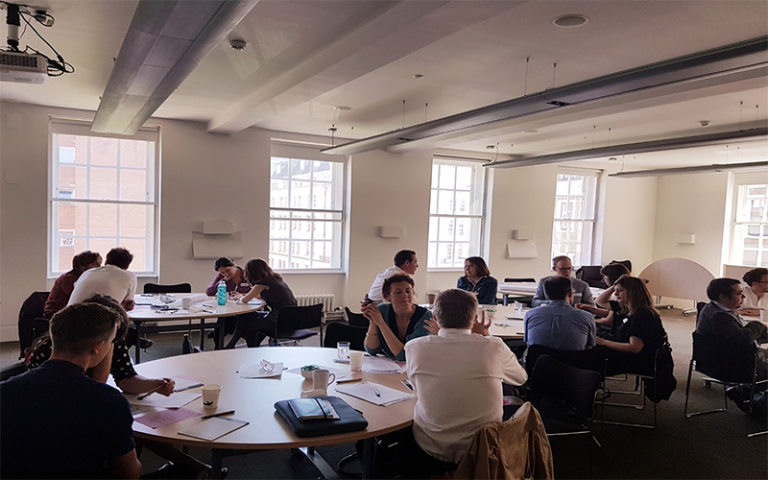Time for Payback? Solutions to the Debt Crisis
28 August 2018
Dr Chris Harker, Lecturer at the Institute for Global Prosperity (IGP), comments on the modern day debt crisis and how research from the IGP's Financial Prosperity Network is responding to it

Another week, another series of shocking reports about the harm record levels of private debt are causing. Households in Britain are £19bn in debt to essential service providers and the government. University graduates in the US now owe $1.4tn, affecting entire family networks. Greece’s punishing austerity regime has resulted in €322bn that must be paid off over the next 42 years.
We now routinely read about the problems caused by high levels of debt across the world. But where are the responses that counter the proliferation and intensification of this debt? We urgently need alternatives that allow people to both manage existing debt problems, while creating news forms of flourishing beyond debt. This means asking far reaching questions about how real quality of life can be financed? How can we envision and engender more inclusive and sustainable forms of prosperity that recognise planetary limits? It also means exploring what options are available for the majority of people whose efforts to create meaningful lives are not supported by existing financial systems and relations?
The Institute for Global Prosperity’s (IGP) Financing Prosperity Network was set up to explore such questions. The Network draws together multiple forms of expertise from within and beyond the academy to reimagine the role of finance in shaping, sustaining and securing communities across the world. This year, network members have been collaborating to share ideas and explore synergies between different approaches to solving debt crises that span multiple geographical contexts. Potential solutions build on creative and innovative forms of citizen activism and span changes to the legal system, rethinking how states support the welfare of their citizens, developing new methods for informing and advising debtors, changing the ways institutions - including credit cooperatives, banks and universities - work, and ensuring these changes are tied in to broader reforms of how societies organise economic and social life. By aggregating and amplifying potential solutions and forms of innovation, we seek to generate collective and scaled-up responses that address the multiple and complex issues created by debt.
Such conversations and partnerships are crucial if we are to generate new ideas about how to make prosperity happen for communities around the globe. Our mission at IGP is to draw together cutting-edge academic thinking from a range of disciplines with social and technical innovation to improve evidence, reasoning and decision-making about how to build a globally prosperous future. We work with communities and a range of partners to challenge assumptions, reframe questions and develop new approaches to achieving a more prosperous global future, underpinned by the principles of equality, justice and a realistic, long-term vision of humanity's place in the world. A place where societies co-exist and interact effectively and where key players seek to improve prosperity, locally and globally. A world where debt supports people’s lives rather than destroying them.
To find out more about the work going on in this area at the Institute for Global Prosperity watch our short film 'An introduction to the Financing Prosperity Network' with Professor Henrietta Moore
Join us for the e-conference, Payback? Co-ordinating Solutions to the Debt Crisis, on the 6th and 7th September 2018. See the programme and find out more about this event by clicking here.
 Close
Close

